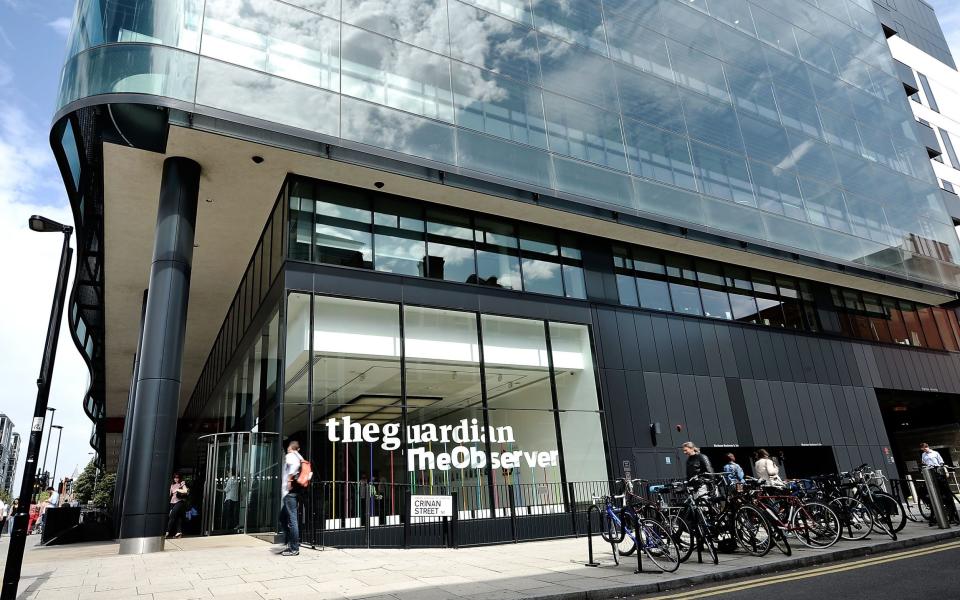The Guardian says sorry for slavery links and sets up £10m reparation fund

The Guardian has apologised for historic links to slavery and set up a £10m reparation fund after a three-year investigation into itself.
The Scott Trust, which owns Guardian Media Group, plans to launch a decade-long programme of “restorative justice” to make up for the role the newspaper’s founders played in the transatlantic slave trade.
This will include donating millions of pounds to communities harmed by the business interests of the Guardian’s 19th-century founders. The donations will be funded from The Scott Trust’s £1.3bn endowment.
It comes after an investigation commissioned by the trust found that the paper’s founder and the vast majority of his financial backers had links to slavery, mainly through the textiles industry.
Researchers from Nottingham and Hull universities established links to plantations on the Sea Islands off the east coast of the US. Invoice books showed John Edward Taylor, the journalist and cotton trader who founded the newspaper in 1821, had interests in businesses that imported vast quantities of raw cotton produced by slaves in the region.
The finding was uncovered in The Scott Trust Legacies of Enslavement report, which was commissioned by the paper in 2020.
It found that Mr Taylor and at least nine of his 11 backers had links to slavery, mainly through the textiles industry.
Sir George Philips, a West India merchant and another of the Guardian’s early backers, co-owned the Success sugar plantation in Jamaica.
He unsuccessfully tried to claim compensation from the British government in 1831 for the loss of 108 slaves, according to the report. His partner successfully won compensation estimated at around £200,000 in today’s money.
In a statement alongside the report, published on Tuesday, the Scott Trust said: “As the owners of the Guardian, the Scott Trust apologises to the affected communities identified in the research and surviving descendants of the enslaved for the part the Guardian and its founders had in this crime against humanity, perpetrated against their ancestors.”
It also apologised for the Guardian’s early editorial position in support of the cotton and textile industry, “and therefore the continued exploitation of enslaved people”.
In an article published on Tuesday, Katharine Viner, editor-in-chief of the Guardian, wrote: “We are facing up to, and apologising for, the fact that our founder and those who funded him drew their wealth from a practice that was a crime against humanity.
“As we enter our third century as a news organisation, this awful history must reinforce our determination to use our journalism to expose racism, injustice and inequality, and to hold the powerful to account.”
The Scott Trust said its £10m fund will support projects in the Gullah Geechee people in the southern United States and Jamaica over the next decade. A precise figure and allocation of funds to be reported within 12 months.
Other measures include raising awareness of transatlantic slavery and its legacies, improving media diversity and further academic research.
The Guardian said it will also expand its reporting of black communities in the UK, US, Caribbean, South America and Africa, with plans to hire 12 new journalists to cover the subject area.
The programme is the latest example of media organisations seeking to make amends for historical ties to slavery.
Earlier this month a BBC journalist quit the broadcaster weeks after she apologised for her family’s ownership of more than 1,000 slaves on the Caribbean island of Granada.
Laura Trevelyan, an anchor on BBC World News, has pledged £100,000 in reparations, which she said would be funded through her pension payout from the broadcaster.
Prime Minister Rishi Sunak has faced calls from Labour MP Clive Lewis to enter negotiations with the UK’s former Caribbean colonies to pay reparations for “hideous” abuses under slavery.

 Yahoo Finance
Yahoo Finance 